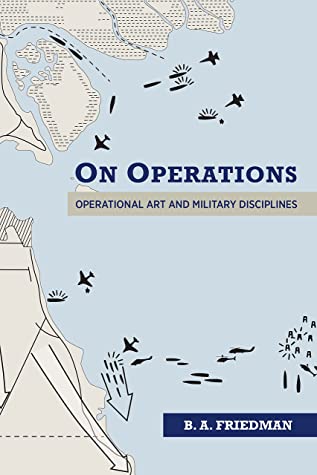On Operations A Review
(Disclaimer: Naval Institute Press provided me with a review copy of On Operations by B.A. Friedman) „What are the levels of war, and why are they important?” was one of the first questions I asked myself when I started to study war and human conflict. I found conflicting answers and could not make sense of it until someone explained it to me like this: Imagine you are the leader of a group of teenagers. You decide to TP* a teacher’s house. You pick the TP team, others are sent to procure a specific amount of toilet paper. All this is the strategic level. You makeRead More →


